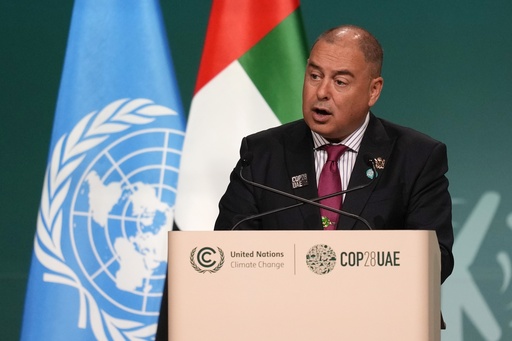
WELLINGTON, New Zealand — The Cook Islands has recently announced further collaboration with China concerning seabed mineral mining. This agreement follows a rare diplomatic conflict with New Zealand, the Cook Islands’ primary supporter, and sparked protests domestically.
The growing tensions between New Zealand and the Cook Islands—nations linked by shared passports, military, and constitutional ties—reflect a significant win for China’s diplomatic outreach in the Pacific and a setback for Western countries seeking to limit China’s influence in the region, according to analysts.
Notably, the new agreement does not include any security initiatives, which have characterized other accords between China and smaller Pacific nations. The pact, signed by Cook Islands Prime Minister Mark Brown during his recent trip to Beijing, lacks specific details regarding the partnership, including any assured financial support from China.
Mihai Sora, director of the Pacific Islands Program at the Lowy Institute, described the situation as indicative of a fierce struggle for geopolitical power.
The Cook Islands, home to approximately 15,000 residents, operates under a tourism-driven economy and has a vast exclusive economic zone. In its relationship with New Zealand, it remains a self-governing entity associated with the larger nation, which is a significant source of development aid. While New Zealand pledges support in military and foreign affairs, it requires the Cook Islands to inform it of any developments that could impact Wellington.
Tensions escalated when Prime Minister Brown declined to share the text of the China agreement with New Zealand officials prior to his visit, leading to criticism from Wellington. In response, around 400 citizens protested outside the parliament in Avarua after Brown’s return, citing sentiments such as “stay connected to New Zealand.”
Of the proposed agreements from his recent trip, Brown has only made the strategic partnership public. This document outlines plans for Chinese financial support towards infrastructure and educational initiatives, and includes an agreement for the Cook Islands to advocate for China at regional Pacific gatherings.
Brown emphasized that the new deal does not diminish their long-standing ties with New Zealand and Australia but is intended to diversify their partnerships. He communicated this during his address to parliament on Monday.
Sora notes that leaders of smaller island nations might overestimate their abilities to navigate interactions with China’s vast resources and should remain cautious of becoming overly reliant or compromised.
New Zealand’s Foreign Minister, Winston Peters, expressed caution regarding the new agreement, stating that authorities would examine the text before anyone commented on it. He urged Brown to disclose all other signed agreements, highlighting that transparency and consultation are essential components of their relationship.
Despite the controversy, Brown maintains that he was not obligated to disclose the exact wording of the agreements.
China’s activity in the Pacific has intensified, particularly as island nations that previously recognized Taiwan have shifted their diplomatic allegiance to Beijing, leaving Taiwan with only a few remaining allies. These shifts often precede bilateral agreements promising collaboration.
Australia and New Zealand, as the region’s primary aid donors, harbor security concerns regarding these partnerships, some of which, such as those made with the Solomon Islands and Kiribati, have remained undisclosed.
Sora suggests that the publicizing of this specific agreement serves China’s interests by showcasing its diplomatic success in forging closer ties with the Cook Islands.
This latest dispute marks the second diplomatic issue New Zealand has faced in a short span; earlier this month, New Zealand indicated it was reevaluating its development aid to Kiribati after its leadership allegedly disregarded a meeting with Peters in anticipation of an upcoming trip. Since abandoning ties with Taiwan for Beijing in 2019, Kiribati has increasingly forged closer relationships with China.

